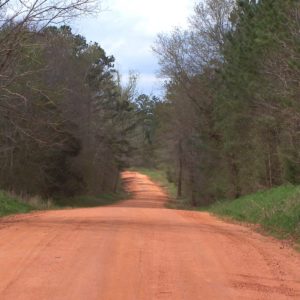The Stream, September 20: Powerful 7.1 Magnitude Earthquake Shakes Mexico, Killing Over 100
The Global Rundown
The second major earthquake in less than two weeks strikes Mexico, toppling buildings and causing water tanks to crack and rupture. Millions of California water customers could potentially fund a costly water re-engineering project. Winter temperatures in Australia were two degrees Celsius above average, making 2017 the warmest winter on record. As of Tuesday night, Category 5 Hurricane Maria heads toward the Virgin Islands and Puerto Rico after pummeling the Caribbean nation of Dominica. Scientists publish the genome sequence of pearl millet, a crop that appears to withstand severe heat and drought.
“It’s always hot – it’s the desert – but the difference between 33C and 36C can be quite oppressive.” –Shaun Burgess, a teacher in Bidyadanga, Western Australia, in reference to record-breaking temperatures across the state this winter. In July, 72 temperature records were broken in Australia during the warmest winter on record. Temperatures across the country averaged two degrees Celsius higher than usual. The Guardian
By The Numbers
7.1 Magnitude of a powerful earthquake that shook Mexico on Tuesday afternoon. The epicenter of the quake was in the state of Morelos, about 100 miles from Mexico City. Homes, buildings, and other infrastructure were destroyed, including water tanks in the city of Jojutla de Juarez. As of Tuesday night, the death toll was near 140, but the number is expected to climb. The New York Times
$16 billion Cost of an ambitious project to re-engineer California’s north-to-south water system. The proposed project requires building two massive tunnels to carry water from northern California to southern parts of the state. No major water district have committed to helping with the cost of the tunnels, however, meaning local water agencies and their customers may be responsible for footing the bill. ABC News
Science, Studies, And Reports
Scientists from the University of Vienna recently published the genome sequence for pearl millet, a cereal crop which could help small-scale farmers with minimal irrigation survive drought. Pearl millet was found to be harvestable under intense heat and drought, compared to rice, maize, and wheat, which stopped producing grains under similar conditions. Science Daily
On The Radar
Hurricane Maria battered the Caribbean island of Dominica, home to 72,000, on Tuesday morning, with maximum wind speeds reaching 160 miles per hour. The Category 5 storm has also caused damage to other nearby islands. It is now moving toward Puerto Rico and the Virgin Islands, where it is expected to make landfall Tuesday night. The New York Times
Kayla Ritter is a recent graduate of Michigan State University, where she studied International Relations and Teaching English to Speakers of Other Languages. She is currently based in Manton, Michigan. Kayla enjoys running, writing, and traveling. Contact Kayla Ritter



